Sheffield United footballer Tom Davies shares his remarkable journey from the football pitch to the forefront of sustainable entrepreneurship. As Managing Director of ChopValue UK, Tom is transforming millions of discarded chopsticks into high-performance, eco-friendly furniture, while setting new standards for sustainable manufacturing. With candid insights on balancing his athletic career with running a pioneering business, overcoming market skepticism, and his vision for the circular economy, Tom offers valuable lessons for both entrepreneurs and executives alike. This conversation delves into his leadership philosophy, the challenges of building a green enterprise, and his mission to inspire a future where waste becomes resource.
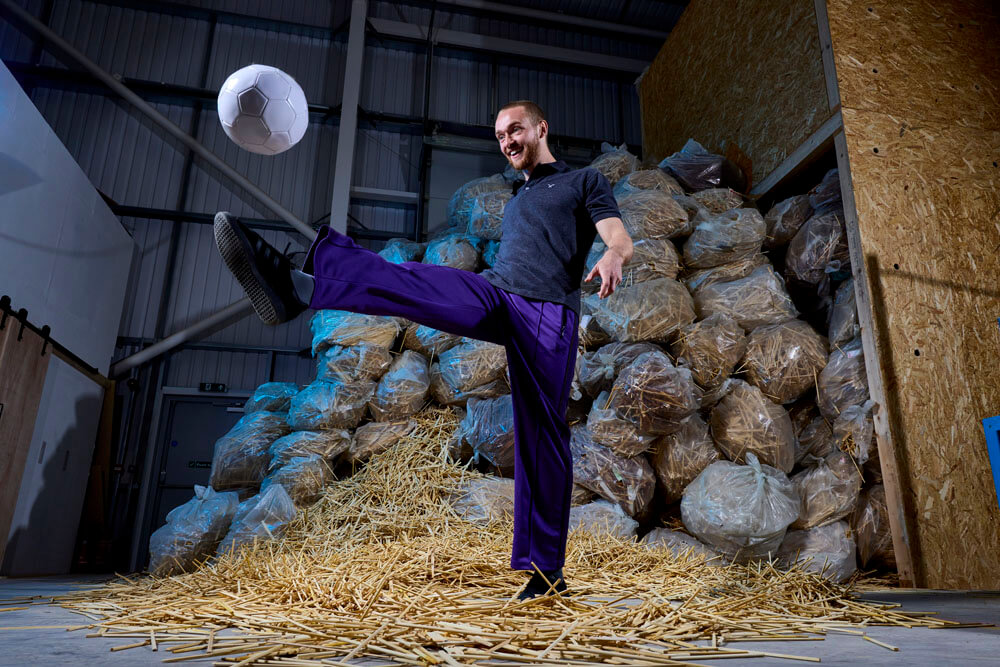
You have successfully transitioned from being a professional footballer to leading a pioneering sustainable furniture company. What inspired you to venture into the circular economy and repurpose chopsticks into furniture?
“My journey into the circular economy started with a simple idea. My agent Neil Sang introduced me to the concept of ChopValue which existed in Canada, repurposing chopsticks into furniture and the opportunity to bring it to the UK. I’ve always been passionate about sustainability, so it felt like a perfect fit. ChopValue’s mission to transform waste into valuable resources really resonated with me. The fact that an estimated 80 billion chopsticks are used globally each year and are at risk of going straight to landfill was a huge motivator for me to get involved.”
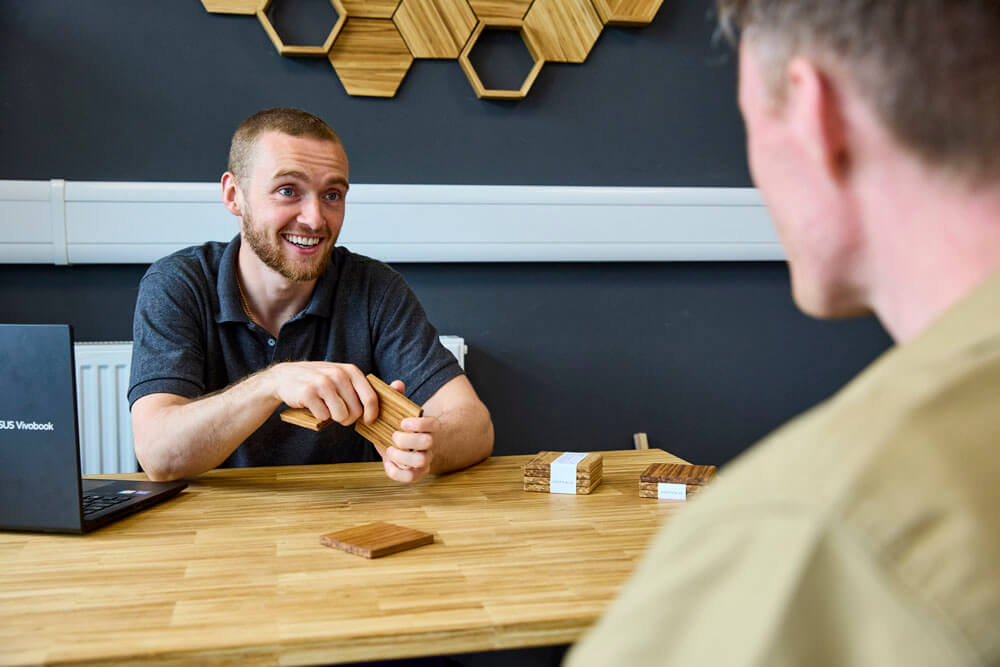
Can you describe the journey of establishing ChopValue UK? What were the initial challenges you faced, and how did you overcome them?
“Starting ChopValue UK was no walk in the park. We faced a lot of challenges, from setting up the infrastructure to getting people on board with the idea. But with perseverance and a bit of help from my public profile, we got things rolling. We began by collecting chopsticks from local restaurants in Liverpool and Manchester, and it’s been an incredible journey since then. The initial scepticism about using chopsticks as a resource is a big hurdle, but we’re breaking down barriers by educating the market about the benefits of sustainable products.”

As a professional athlete and a business leader, how do you balance the demands of your football career with running a growing company? What skills from football have translated into your business practices?
“Balancing my football career with running a company is certainly a juggling act. But the skills I’ve gained from football; like teamwork, discipline, and strategic thinking, have been invaluable. It’s all about meticulous time management and making sure I give my best to both roles. Regularly visiting the microfactory and getting hands-on with the process, from sorting chopsticks to working the laser engraving machine, has been a rewarding experience.”
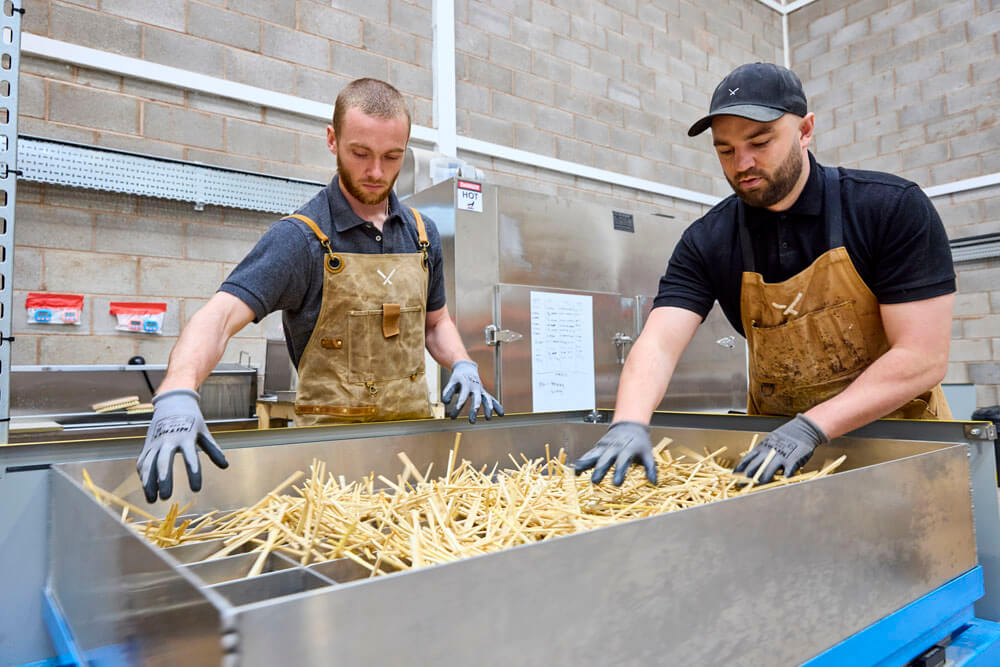
ChopValue UK has repurposed nearly five million chopsticks in its first year. What impact do you hope to achieve in the next five years, both environmentally and within the industry?
“Looking ahead, we hope to significantly increase the number of repurposed chopsticks. We’ve already repurposed nearly five million chopsticks in our first year, and our goal is to convert 25 million chopsticks into premium climate-positive products, saving up to 1,200 tonnes of CO2 emissions. Globally, ChopValue has already diverted over 160 million chopsticks from landfill, storing 7,890,770 kg of CO2 emissions. Our products are not only sustainable but also high-performance, being stronger than oak and harder than maple.”
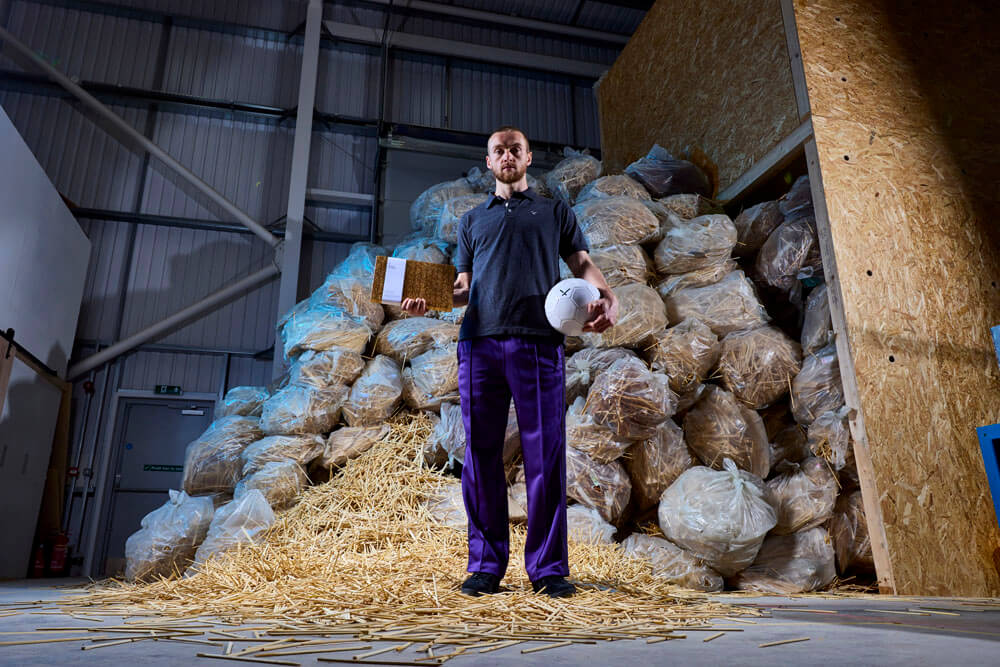
Your Liverpool Microfactory uses an electric van for collections, emphasising sustainability. Can you share more about your operational strategies and how they align with your commitment to the environment?
“At our Liverpool microfactory, we use an electric van for collections to minimise our carbon footprint. We’re all about sustainability, from the products we create—like keychains, chopping boards, and office desks—to the processes we use. It’s a comprehensive approach that starts with collecting chopsticks and ends with delivering high-quality, eco-friendly products. Our manufacturing process is entirely carbon-negative, and the detailed process includes sorting, resinating, drying, densifying, and finishing the chopsticks into high-quality products.”
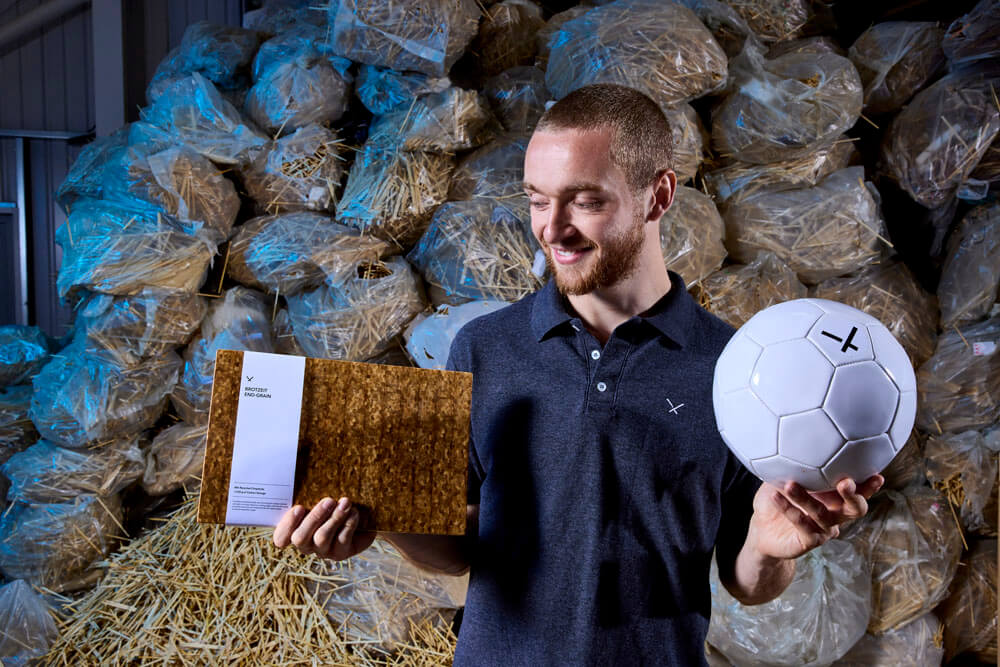
How do you see the future of sustainable manufacturing evolving, and what role do you envision ChopValue UK playing in that future?
“I see ChopValue UK playing a key role in the future of sustainable manufacturing. We want to set an example and encourage other businesses to adopt circular economy practices. Sustainable manufacturing is the way forward, and I believe it will continue to grow in importance. Our vision is to redefine the term ‘waste’ to ‘resource’, inspiring other businesses to join the circular economy, which is estimated to yield significant economic benefits over the next decade.”
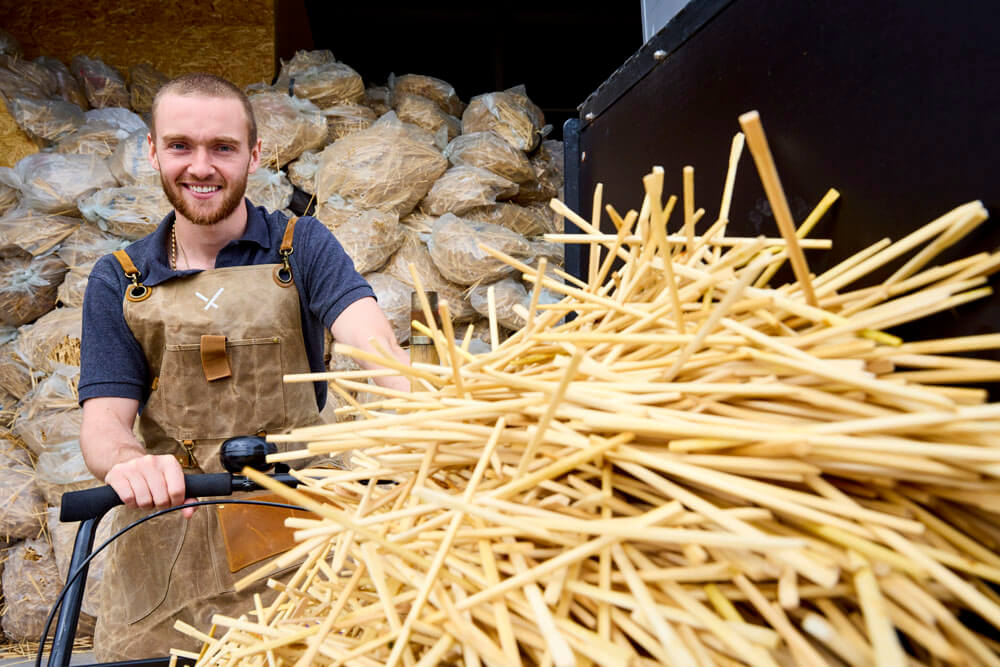
ChopValue UK is heavily involved in local communities, offering green carpentry skills and sustainable practices. How important is community engagement to your business model, and how do you foster these relationships?
“Community engagement is at the heart of what we do. We offer sustainable carpentry skills and promote sustainable practices within local communities. It’s about building a strong, supportive network and making a real difference. Training new employees and showing them sustainable carpentry skills has been incredibly rewarding. We also collaborate with local and national businesses to create customised solutions that meet their sustainability goals.”
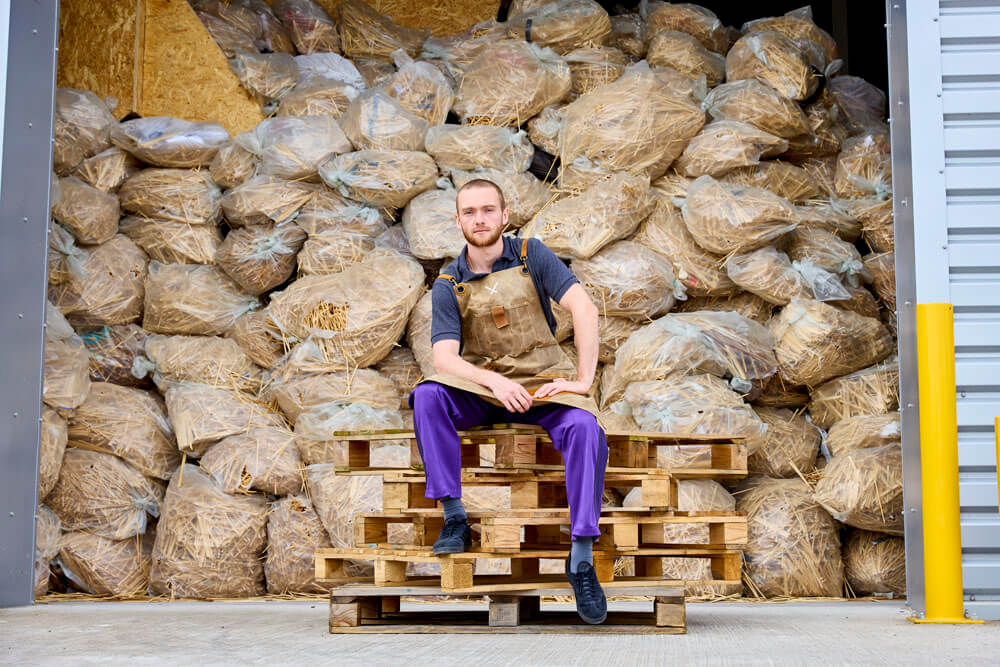
What have been some of the most significant challenges you’ve encountered as an entrepreneur in the sustainable sector, and how have you addressed them?
“We’ve faced significant challenges, especially with market acceptance and operational logistics. But we’ve tackled these by continuously innovating and educating the market about the benefits of sustainable products. The fact that we’d already collected nearly five million chopsticks ahead of our grand opening in June this year is a testament to our efforts and the growing consumer adoption of sustainable products. Our current focus is to grow our sales, let the public and businesses know we exist, and that our products are functional, durable and a beautiful alternative to using virgin woods, and we have so many to choose from.”
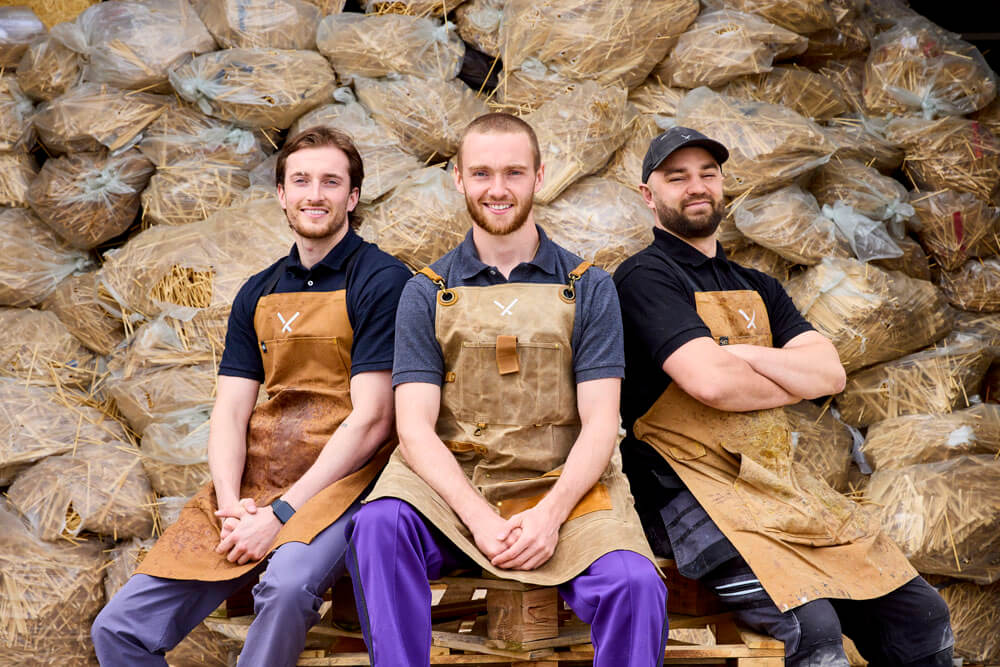
As a business leader, what qualities do you believe are essential for inspiring and guiding a team towards innovative and sustainable solutions?
“For me, inspiring and guiding a team requires vision, resilience, and the ability to motivate others towards a common goal of sustainability. My leadership is driven by my commitment to environmental causes and my ability to inspire my team to achieve great things. I believe in leading by example and educating others on the importance of sustainability and responsible manufacturing.”
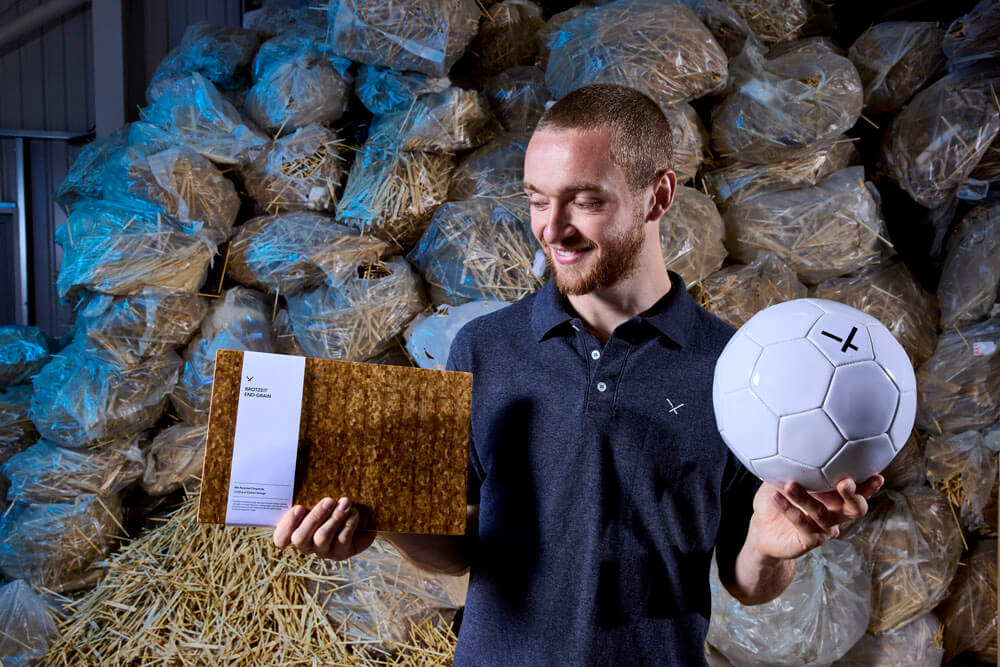
What advice would you give to aspiring entrepreneurs who are looking to make a meaningful impact in their industries, especially those interested in sustainability and the circular economy?
“My advice to aspiring entrepreneurs is to stay committed to your vision, keep learning, and be adaptable. Passion and perseverance are key, especially in the fields of sustainability and the circular economy. Believe in what you’re doing and keep pushing forward.”
Given your platform as a professional footballer, how do you leverage your influence in the sports industry to promote sustainability and responsible manufacturing practices?
“As a professional footballer, I use my platform to promote sustainability by raising awareness and advocating for responsible manufacturing practices. Balancing my football career with entrepreneurship has allowed me to leverage my public profile to support environmental causes, which is something I’m equally passionate about. I’m committed to ensuring upcoming generations have a healthy planet on which to thrive and understand the huge importance of treating it kindly.”


